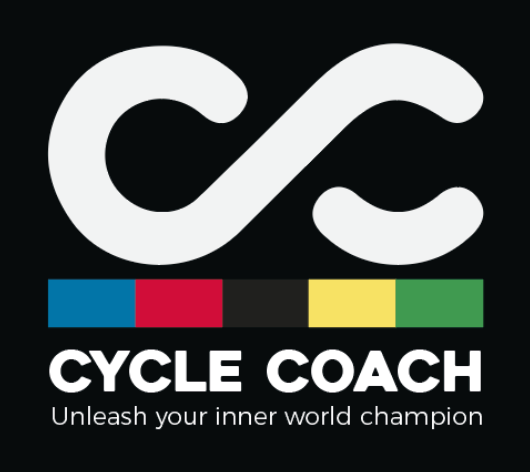COVID-19
Corona/COVID-19
As you’d expect, all the news at the moment is about the Corona Virus (COVID-19) but how is it affecting cyclists and triathletes, and what should you be doing to combat the disease, and keep fit for racing/your events if they’re cancelled? Firstly, I’ll discuss what COVID-19 is and how it affects us (from an illness standpoint), then discuss what we could be doing.
COVID-19 is a new respiratory disease that appears to infect us in similar ways to the cold and flu and other similar diseases, such as through cough droplets, body fluids, and touching infected surfaces.
Symptoms of COVID-19 include a temperature, a continuous cough, fatigue, breathing difficulties and muscle pain. There are currently no treatments such as vaccines to combat COVID-19 (and antibiotics don’t work on it, because it’s a virus and not a bacterial infection). Some of the side effects can be managed by painkillers, such as paracetamol.
How is it affecting sport?
As I write this (13/3/2020) many sporting events are being cancelled throughout the world and in Europe. It appears that the Classics will not be going ahead (at least the Belgian ones, and possibly Paris Roubaix), the Giro d’Italia has been cancelled, F1 racing, Football, the London Marathon and a variety of other events have also been cancelled. Potentially the Tour de France and the Olympics may also be impacted. It’s a fluid situation that is ever changing. However, authorities are already discussing about rearranging these events (e.g., the London Marathon has now been scheduled for October from it’s usual April slot).
Will my race or event be cancelled?
In the neighbouring Republic of Ireland, all racing has been cancelled to the end of March 2020. It’s quite possible that other countries will cancel some races.
Do I carry on training, if my events are cancelled?
Yes, for certain this is important. Even if your event is cancelled it will likely be rescheduled for a different date, or there will be lots of other events later in the year you can take part in. Additionally, and more importantly, maintaining your training when you are free of illness and asymptomatic is an important way to maintain your health, keep you fit, and allow you to compete when possible. Panicking that your main race or event has been cancelled or may be cancelled is actually detrimental to both your mental health (it’s an unnecessary worry and stress) and your physical health (it can have negative implications on your immune system).
Keeping training
Keep training as you are. You (and your coach) may need to change your training in small ways if events are delayed — for example you may normally do some high intensity training in the weeks leading up to your main event, but if it’s delayed you may need to replace with less intense training. Additionally, if you are currently in a weight loss phase, or perhaps doing substantial amounts of fasted riding, then you may need to change this as these can have small negative effects on your immune system, which you obviously want to function well (to keep the virus at bay).
What if I become ill with COVID-19?
From what I understand there are some people who will be asymptomatic and have no signs of illness, and others who are unwell (such as with the flu) and very unwell. In these latter two categories you won’t be interested in training, and will self-suspend training. In the former you may be able to continue with light training.
What if I have a cold?
It maybe that you can’t tell the illnesses apart, and that (in the UK at least) you may not be tested. I generally work with idea that if you are ill you should reduce or suspend training until you feel better. If symptoms are in your head (i.e., blocked nose, rather than you’re imagining it) light easy training should be ok. This doesn’t mean you should ride at low intensity until you’re exhausted or ‘blow up’ (glycogen depletion) as this will negatively impact your immune system.
Nutrition
Good nutrition will strengthen your immune system. This includes plenty of fresh fruit and veggies, and a moderate to high carbohydrate diet. Substantial evidence shows that carbohydrates help with immune function.
Can I minimise the risk of catching COVID-19
Yes, there are several things that can be done in addition to the above, these include,
*Wash your hands frequently, for at least 20-seconds, with soap and warm water, especially before eating or preparing food
*Stay away from people who are ill, and coughing, sneezing, etc
*Spend as little time as possible in crowds
*Train alone. Often when we train, we may sweat and spit, and this can harbour the virus
*Do not share food, drinks, crockery, or cutlery with others
*Stay hydrated and eat well. Bolster your immune system with antioxidant containing vegetables.
*Reduce stress (as this negatively impacts your immune system)
*Stay up to date with other sound advice from trusted sources (e.g., https://www.nhs.uk/conditions/coronavirus-covid-19/)
Lastly, I’d like to offer a recipe that has helped me get through the flu and numerous colds before. It won’t prevent you getting ill, or make you miraculously better, but I’ve found it helps me (and others) to breathe more freely, is a rich source of vitamins and antioxidants, and provides carbohydrates (especially if eaten with say rice or bread) and fluids. https://www.facebook.com/cyclecoachrst/posts/297141887011343
In the meantime, stay safe, keep it fun, and if you have any questions please do ask me! In the next day or two we may have a blog post from Coach Neil who is currently in lockdown in Italy where he lives!
